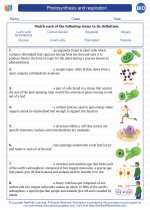Pond Ecosystem
A pond is a small, shallow body of water that is often characterized by the presence of aquatic plants, algae, and various animal species. Ponds are important ecosystems that support a wide variety of life forms and play a crucial role in local biodiversity.
Components of a Pond Ecosystem
Pond ecosystems consist of both biotic (living) and abiotic (non-living) components. Some key components include:
- Water: The primary medium that supports life in the pond.
- Plants: Aquatic plants such as lily pads, cattails, and algae play a vital role in the pond ecosystem by providing oxygen, food, and shelter for various organisms.
- Animals: Ponds are home to a diverse array of animal species, including fish, frogs, turtles, insects, and small mammals.
- Microorganisms: Bacteria, protozoa, and other microorganisms are essential for nutrient cycling and maintaining water quality in the pond.
- Abiotic Factors: These include sunlight, temperature, pH, dissolved oxygen, and nutrients, which influence the overall health of the pond ecosystem.
Functions of a Pond Ecosystem
Ponds serve several important functions within the environment, including:
- Supporting biodiversity by providing habitats for a wide range of plant and animal species.
- Acting as a water source for various organisms, including birds, mammals, and insects.
- Contributing to nutrient cycling and the purification of water through natural processes such as filtration and decomposition.
- Providing recreational and educational opportunities for people to observe and study aquatic life.
Human Impact on Ponds
Human activities such as urbanization, agriculture, pollution, and climate change can have adverse effects on pond ecosystems. These impacts may include habitat destruction, water pollution, disruption of natural processes, and loss of biodiversity.
Study Guide
To understand the pond ecosystem, students should focus on the following key areas:
- Identify and describe the biotic and abiotic components of a pond ecosystem.
- Explain the interrelationships between different organisms within the pond ecosystem, including food chains and webs.
- Discuss the importance of ponds in supporting biodiversity and their ecological functions.
- Analyze the negative impacts of human activities on pond ecosystems and propose potential conservation measures.
[Pond] Related Worksheets and Study Guides:
.◂Biology Worksheets and Study Guides High School. Photosynthesis and respiration
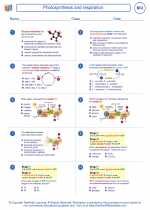
 Worksheet/Answer key
Worksheet/Answer key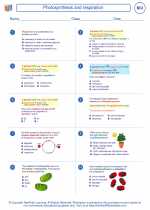
 Worksheet/Answer key
Worksheet/Answer key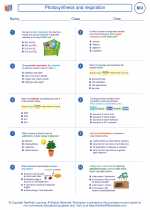
 Worksheet/Answer key
Worksheet/Answer key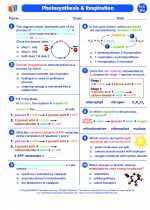
 Vocabulary/Answer key
Vocabulary/Answer key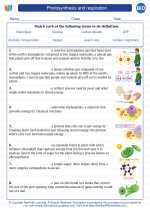
 Vocabulary/Answer key
Vocabulary/Answer key